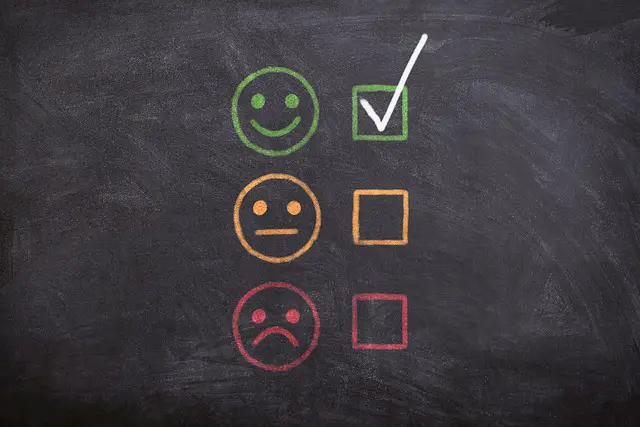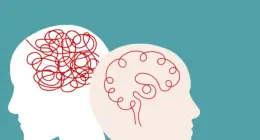judgement involves forming opinions or making evaluations based on personal beliefs, observations are simply facts that we perceive through our senses without any subjective interpretation.
What is Judgement?

Judgement is the act of forming an opinion or belief about something or someone based on limited information or personal biases. It often involves making assumptions and jumping to conclusions without fully examining all the facts. Judgements are influenced by our past experiences, societal norms, cultural beliefs, and even our own insecurities.
When we judge others, we create a narrative in our minds that may not necessarily align with reality. We assign labels and make generalizations without truly understanding the complexities of a person’s character or situation. This can lead to misunderstandings, conflicts, and perpetuation of stereotypes.
It’s important to recognize that judgement is a natural human tendency. Our brains are wired to categorize and evaluate things quickly for survival purposes. However, it becomes problematic when this habit extends beyond basic survival instincts and starts affecting how we perceive others in everyday situations.
In many cases, judgement operates on subconscious levels where we may not even be aware of our biases influencing our perceptions. By becoming more conscious of our judgements and actively challenging them with curiosity and empathy, we can begin to break free from these limitations and cultivate more open-mindedness in ourselves.
What is Observation?
Observation is the act of noticing or perceiving something through our senses. It involves being present and aware of what is happening around us, without any preconceived notions or biases. When we observe, we simply take in information without making any judgments or evaluations.
Observation allows us to gather data and facts about a situation, person, or event. It enables us to see things as they are, rather than how we think they should be. By observing carefully, we can gain valuable insights and deepen our understanding of the world.
To effectively observe, it is important to be fully engaged in the present moment. This means paying attention to details, being open-minded, and suspending judgment. It requires patience and curiosity to explore different perspectives and possibilities.
In daily life, observation plays a crucial role in various situations. For example, when studying nature, scientists meticulously observe plants and animals to understand their behavior and characteristics. In interpersonal relationships, active listening involves observing non-verbal cues such as body language and facial expressions.
By practicing observation regularly in our lives – whether it’s observing nature or people – we can develop a greater sense of empathy and understanding for others’ experiences. Observation helps us cultivate mindfulness by grounding ourselves in the present moment instead of getting lost in judgments based on assumptions.
Judgement Vs. Observation – Key differences
| Aspect | Judgment | Observation |
|---|---|---|
| Definition | Forming an opinion or evaluation based on personal beliefs, values, and preconceived notions | Perceiving and noting facts or information based on sensory input, aiming for objectivity |
| Subjectivity | Inherently subjective, influenced by personal views and emotions | Aims to be objective, minimizing personal bias and emotions |
| Basis | Often relies on personal biases and preconceived ideas | Relies on what is directly perceived through the senses |
| Emotions | May involve strong emotional components | Generally less influenced by emotions |
| Evaluation | Involves assessing and forming conclusions about the subject | Involves recording or describing what is happening without making conclusions |
| Purpose | Often involves forming opinions, making decisions, or drawing conclusions | Primarily concerned with gathering information or data |
| Examples | I don't like that restaurant; the food is terrible. | The restaurant had dim lighting, and the food took a long time to arrive. |
| Influence on Actions | Can lead to biased decisions or actions | Provides a basis for informed decisions and actions |
Practical Examples of Judgement vs Observation in Daily Life
Judgment
- Restaurant Review: When you say, “I didn’t like that restaurant; the food is terrible,” you are passing judgment based on your personal taste and opinion about the food. Your judgment is influenced by your subjective preferences.
- Movie Review: If you say, “That movie was boring,” you are providing a judgment about the movie’s quality based on your entertainment preferences.
- Fashion Choices: When you comment, “I don’t like those shoes; they’re ugly,” you are making a judgment about someone’s fashion choices based on your aesthetic preferences.
- Political Views: Saying, “I don’t agree with their political stance; it’s wrong,” is a judgment based on your personal political beliefs and values.
Observation

- Weather Report: “It’s currently 22 degrees Celsius, and the sky is clear” is an observation of the weather based on objective data like temperature and sky conditions.
- Traffic Report: “There’s a traffic jam on the highway, and cars are moving slowly” is an observation of the traffic situation based on what you can see and experience.
- Scientific Experiment: In a scientific experiment, researchers make observations about the behavior of substances or objects without expressing personal opinions.
- Crime Witness: If you witness a car accident and report, “The red car ran the stop sign and hit the blue car,” you’re providing an observation of the event without passing judgment.
In these examples, judgments involve personal opinions and subjective assessments, while observations are factual descriptions based on sensory input or data.
Image Credits
Featured Image By – Adrian from Pixabay
Image 1 By – Gerd Altmann from Pixabay
Image 2 By – beauty_of_nature from Pixabay








